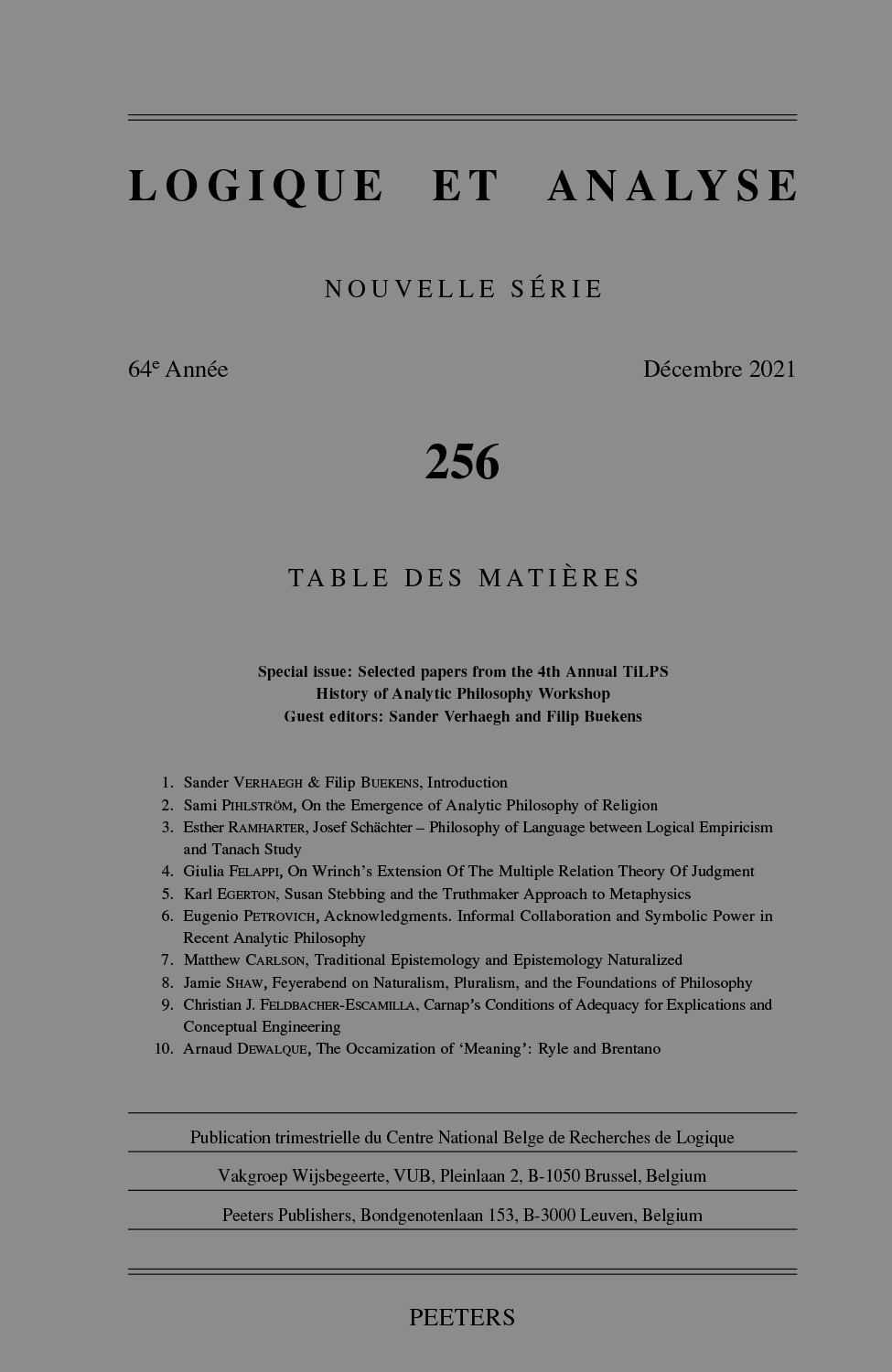 previous article in this issue previous article in this issue | next article in this issue  |

Preview first page |
Document Details : Title: Causation & Technical Problem Solving Subtitle: An Analysis of Causal Knowledge Underlying Proposed Solutions for Technical Problems Author(s): WEBER, Erik , DE BAL, Inge Journal: Logique et Analyse Volume: 247 Date: 2019 Pages: 285-318 DOI: 10.2143/LEA.247.0.3287265 Abstract : In this paper we analyse the causal underpinnings of remedy claims found in technical problem solving instructions. For these claims to be successful, they need to be based on causal relations that hold in the world and that have certain properties. These required properties are the focus of our paper. We first introduce several examples from car- and bike repair manuals that demarcate our topic and function as illustrations throughout the paper. We then formulate two criteria of adequacy for problem solving manuals: the efficiency requirement and the no harm requirement. These criteria determine the required strength and properties of the causal relation, and are used to frame our analysis. We start from theories of causation by Ronald Giere and Ellery Eells to develop a series of definitions to capture the properties of the aforementioned causal relations. We conclude that remedy claims need to be based on causal relations with the following property: positive causal factorhood with weak context-unanimity. To strengthen this conclusion and situate our results in the philosophical literature on causation, we then show that other classical theories of causation (viz. David Lewis’ counterfactual theory, James Woodward’s interventionist theory and process theories like that of Wesley Salmon or Phil Dowe) are not adequate to capture the causal underpinnings of remedy claims. Each theory has certain properties that leads to violations of either the efficiency requirement, or the no harm requirement. We conclude with some reflections on further research. |
|


